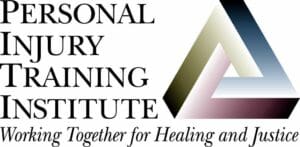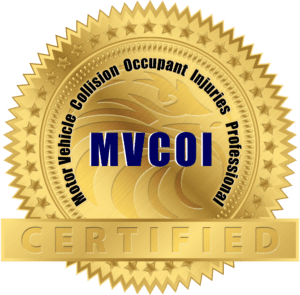Strategies for Treating Physicians to Minimize Allegations of Patient Malingering in Personal Injury Cases
Best Practices for Ensuring Credibility and Integrity
By Joseph Brimhall DC
In the realm of personal injury cases, treating physicians play an essential role in diagnosing and documenting the injuries of their patients. However, defense medical experts and representatives frequently scrutinize these medical records and testimonies, sometimes alleging malingering — the intentional feigning or exaggeration of symptoms for secondary gain. To minimize such allegations toward the patient, treating physicians must adhere to certain practices that emphasize clinical objectivity, thorough documentation, and clear communication.
Thorough Examination and Documentation
Malingering is not a diagnosis–there is no single conclusive test to confirm malingering. The most effective way to minimize allegations of malingering is through comprehensive evaluation and meticulous documentation. Attending physicians should ensure that all clinical findings, treatment plans, medical histories, patient behaviors, and symptom reports are systematically recorded.
Correlate objective findings: When indicated, clinical records should affirmatively integrate imaging studies, lab tests, and validated measurements to support examination outcomes, the patient’s symptoms, and the reported cause of the injuries.
Detail patient history: Provide comprehensive documentation of the patient’s explanation of their injuries and their medical history, including prior injuries, treatments, and any other relevant factors.
Explore unexpected symptoms and behaviors: Document observed behaviors accurately and impartially. Examine potential causes and explanations for atypical symptoms and clinical findings, including further questions, evaluations, specialty consultations, and laboratory tests as indicated.
Consistent Follow-Up Evaluations
Regular follow-up examinations are crucial for tracking the progress of the patients recovery and ensuring that the treatment plan remains appropriate. Consistent monitoring helps identify any patterns that might indicate true malingering or other underlying issues.
Schedule regular appointments: Ensure that follow-up appointments and re-evaluations are scheduled at appropriate intervals to assess the patients progress and adjust treatment as necessary.
Document: Record the patients status, compliance with treatment, and any changes in symptoms and findings.
Monitor treatment response: Assess the patients response to treatment and document any modifications made to the treatment plan.
Clear Communication
Effective communication with patients is essential to minimize misunderstandings and ensure that symptoms are accurately reported and addressed. Physicians should establish a trusting relationship with their patients and employ clear and empathetic communication techniques.
Inform patients: Explain the importance of honest and accurate symptom reporting. Educate patients about the potential consequences of exaggerating or feigning symptoms.
Use active listening: Encourage patients to express their concerns and symptoms openly. Practice active listening to validate their experiences and foster trust.
Clarify expectations: Set clear expectations for treatment outcomes and recovery timelines. Keep patients informed about their progress and any changes in the treatment plan.
Collaborate with Other Medical Professionals
Collaboration with other healthcare providers can enhance the credibility of the physician’s findings and reinforce the legitimacy of the patients reported symptoms.
Refer to specialists: Refer patients to specialists for further evaluation when indicated. Documentation from multiple providers can help substantiate the patients condition and cause of injury.
Seek second opinions: Obtain second opinions from other physicians to corroborate the diagnosis and treatment plan. This can provide additional evidence to counter allegations of patient malingering.
Coordinate care: Work closely with other healthcare providers involved in the patient’s care to ensure a cohesive and comprehensive approach to treatment.
Maintain Professional Integrity
The physician’s professional integrity and ethical standards are paramount in minimizing allegations of malingering. Physicians must remain impartial and prioritize the patient’s well-being above all else.
Avoid biased reporting: Ensure that all medical reports and testimonies are based on objective findings and clinical judgment, free from bias or advocacy.
Follow ethical guidelines: Adhere to ethical guidelines established by regulatory boards and associations. Maintain transparency and honesty in all professional interactions.
Recognize limitations: Acknowledge the limitations of the physician’s medical knowledge and avoid overstating the certainty of diagnoses, prognoses, permanent impairment, or causation.
Prepare for Potential Depositions, Trial Testimony, and Legal Scrutiny
Physicians involved in personal injury cases should anticipate legal scrutiny and prepare accordingly. Familiarity with legal procedures and requirements can help mitigate challenges from defense experts.
Understand legal context: Educate yourself about the legal aspects of personal injury cases, including common tactics used by defense experts to discredit medical testimony.
Consult legal professionals: Consult with legal professionals to ensure that medical documentation and testimonies meet legal standards.
Practice court testimony: Prepare for court testimony by practicing with legal experts. Ensure that you can clearly articulate your findings and respond to cross-examination professionally.
Expand your knowledge: Attend seminars, trainings and conferences to expand your knowledge and skills, and to stay current in the field of personal injury.
Personal coaching: Engage a personal coach for targeted consultations to enhance your skills and understanding of current research and best practices in personal injury.
In conclusion, treating physicians in personal injury cases must prioritize thorough documentation, consistent follow-up, clear communication, collaboration with other medical professionals, professional integrity, legal preparedness, and continuing education. Such preparation will help minimize allegations of patient malingering by defense medical experts and representatives. By adhering to these practices, physicians can uphold their credibility, support their patients effectively, and contribute to the fair resolution of personal injury claims.

Joseph Brimhall, DC is the immediate past President of the University of Western States, and a Senior Consultant with Personal Injury Training institute. He is Certified in Motor Vehicle Collision Injuries by PI ONLINE Training Institute. He is the Chief PI Consultant for Personal Injury Trainings.
PI ONLINE Trainings teaches about Malingering and Biopsychosocial issues, and how to effectively address these subjects in just minutes, in EVERY personal injury case.
Dr. Brimhall will be presenting at the Personal Injury Powerhouse Seminar sponsored by Larson Law on October 25th, 2025!
Dr. Jeffrey A. States, Principal and Founder of PI ONLINE Trainings will also be presenting.

